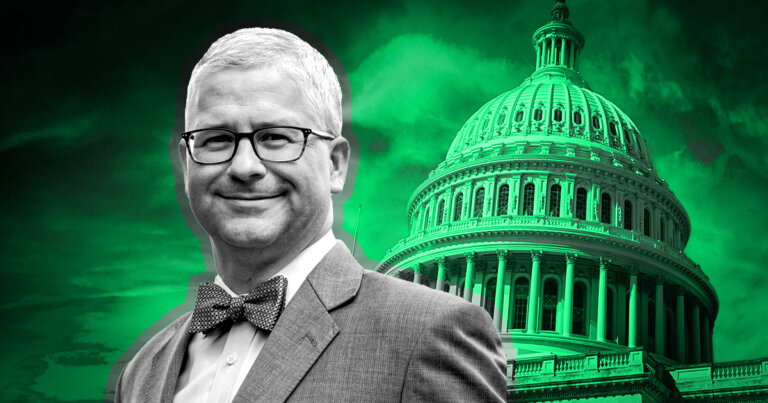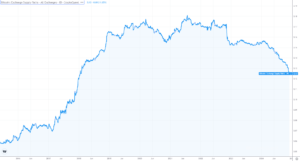 Republican lawmakers object to Fed’s proposed crypto, stablecoin rules
Republican lawmakers object to Fed’s proposed crypto, stablecoin rules Republican lawmakers object to Fed’s proposed crypto, stablecoin rules
Rep. Patrick McHenry and others warn that the Fed's new written-permission requirement may force banks out of participating in the development of the digital asset ecosystem altogether.

U.S. House Office of Photography. Remixed by CryptoSlate
Three U.S. representatives expressed concerns on Aug. 28 regarding stablecoin and crypto rules recently put forward by the Federal Reserve.
Today’s objection was signed by three U.S. representatives: Patrick McHenry, Chairman of the House Financial Services Committee; French Hill, Chairman of the Committee on Financial Services Subcommittee on Digital Assets; and Bill Huizenga, Chairman of the Committee on Financial Services Subcommittee on Digital Assets, Financial Technology and Inclusion. All three representatives are members of the Republican party.
Those lawmakers wrote in their objection:
“We are concerned that these actions are being taken to subvert progress made by Congress to establish a payment stablecoin regulatory regime … [this] will undoubtedly deter financial institutions from participating in the digital asset ecosystem.”
The lawmakers objected to two rules: the Federal Reserve’s “Supervisory Nonobjection Process for State Member Banks Seeking to Engage in Certain Activities Involving Dollar Tokens” and its “Novel Activities Supervision Program.”
The rules in question, which were put forward on Aug. 8, describe broad requirements for banks that work with crypto. The first set of rules requires banks to obtain a written non-objection from the Federal Reserve prior to issuing, holding, or transacting stablecoins. The second would see banks participate in an overall crypto supervision program.
Bipartisan alternative
Representatives asserted that the two sets of rules effectively prevent banks from working in the payment stablecoin or digital asset ecosystem, regardless of any compliance instructions that appear to be contained within the rules.
They complained that the rules were not issued in line with the Administrative Procedure Act and demanded more information from the Federal Reserve.
Despite their objections, the representatives acknowledged a need for regulations. They instead advanced the Clarity for Payment Stablecoins Act — a bipartisan bill backed by Rep. Patrick McHenry, also one of the authors of the latest complaint.





 CryptoQuant
CryptoQuant 
 CoinGlass
CoinGlass 










































































